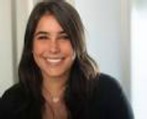ALUMNI PROFILE: Emily Acker"Crossing Boundaries" by: Jesse Bernstein  Emily Acker Emily Acker EMILY ACKER was a junior in high school and had just returned from living in Israel when she decided to write a drama about a Palestinian boy and an Israeli boy who fall in love. It was her first play. Milk and Honey was a winner in the 2008 Philadelphia Young Playwrights Festival contest. Local theatre artist David Bradley was assigned as dramaturge and director for the a staged reading of the play at Temple University. He took the helm again when PYP later produced a fully-staged, professional production in 2010.  David Bradley David Bradley As has happened again and again throughout its history, Philadelphia Young Playwrights launched a new voice and created a valuable and on-going collaboration. After high school, Emily attended Northwestern University and spent some time spent in Chicago before returning to Philadelphia to work as a professional playwright. Among other projects, she is a founding member of the playwrights collective Orbiter 3. She also wears many hats for PYP, including being the Literary Manager of the Paula Vogel Mentors Projects and the Programming Director for the PYP Alumni Council. Sometimes, she just likes "to go to [PYP's] offices and hang out. It's not technically squatting if they let you in." David directs at theaters throughout the Philadelphia area and has deepened his involvement with PYP. Most recently, he helped organize and oversee the 1219 Project and this summer he will once again lead a revisions lab. As he says, "I love seeing myself as an ongoing collaborator with Young Playwrights." To say that they're both busy artists with diverse projects in the works is an understatement. However, as the PYPAC found when we caught up with them, the collaboration that began with Milk and Honey is alive and well to this day. As, apparently, are Emily's emails from 2008... Alumni Council: David, what were your first impressions about the script?
David Bradley: I thought it was a really brave play. This was a love story -- so, that's hard to write. And then it was a love story about cultures that have a really complex and tense relationship, Palestinians and Jews in Israel -- so, that's hard to write. And then it was a love story between two teenage boys, one of whom was coming to realize he was gay. So, that's hard to write! And so I thought it was a really brave, layered look at what crossing boundaries is all about, particularly in that kind of liminal time of high school when everything, all the boundaries are being negotiated all the time. And I first met with Emily in, I think it was a Cosi in Bryn Mawr. And I thought, what a smart, possessed young woman. AC: Emily, was this the first time you were working with a professional director on material you'd written? Emily Acker: Yeah. It was awesome. David is -- I don't know -- his generosity of spirit, especially with a seventeen-year-old, is kind of unbelievable. We got along really quickly. And also it was awesome to hear your work out loud, it was kind of a revelatory experience, especially for someone who was always interested in the arts but not really sure how it would pan out. So it was definitely a formative experience and one that I point back to actively and think about how that launched me in my pursuits now. I think the fact that I still send him my work is proof of the fact that -- I don't even know how to describe it. It's that one thing that you say, "Oh yeah, this is what I'm going to do, now." And that all accounts to David's openness and the time and care he took with the script and with me. AC: So this really did start you on the path that you're on now, being a professional playwright. EA: Certainly. I would say that not only did it send me on a creative, professional trajectory. But I also think it cemented my investment in arts education and the importance of giving that avenue to young people. I was lucky enough to have that, but now I get to work with young students who don't have that or who have schools that are cutting away that experience. My own personal experience makes me understand how much more important it is and the potential it has to make someone's life that much more... everything! To help them find exactly what it is -- why they're supposed to be here and what they're supposed to do. AC: What are your specific memories of the production or the collaboration? EA: We did it twice. The staged reading at Temple I remember less-so than after it won the national competition. Then Philadelphia Young Playwrights produced it at Philadelphia Theatre Company in 2010. And that I remember: I was a freshman in college at this point, getting phone calls from David [and being] at my little dorm room desk and doing rewrites based on notes I got from rehearsal over the phone. Even though I wasn't really involved in the rehearsal process in person, it was always a tandem attack as to how we were gonna present this thing. I remember coming home [for the show] and just being totally ecstatic. I also got a check, which is my first time ever being paid for creative work. For $300. And it was awesome. I remember that. David, do you have any specific thoughts? DB: We'd communicate by email. My memory is that when we did the reading at Temple, you did a lot of rewrites. EA: Yeah, absolutely. DB: I just found -- here, I'll embarrass you, Emily. I found the first email you sent me. "Mr. Bradley" -- "Mr. Bradley"! Ah! Well, we got you over that quickly. EA: I was very polite. DB: "I'm really excited to work to better my play with you--" EA: I'm nervous! DB: So what I remember was everybody was really into working on this play. We had a great cast. And we had a cast of people who worked a lot. Everybody was really into this. Everybody took it seriously. Everybody worked on it and when things were challenging, we'd talk about it, because everybody knew this play worked and it was only about making it better. So that's one thing I remember, is just how committed the cast was to doing this play, and to the importance of the story. It was never a sort of thing of eye-rolling or, "Well, I guess we can make this work if that's what we got." No, it was, We were telling an important story. And high school students were going to see something brave. And two guys were going to kiss on stage. And somebody was going to have his shirt off. And we were putting it out there. AC: What's your interaction with one another been since then? EA: Since I moved back [to Philadelphia], because of our intersections with Young Playwrights, we get to see each other every so often, which is wonderful. And recently I sent him a first draft of a new play, and we met [to discuss it]. And I still very much heed all of his insights, because I think, from early on and from our earliest creative encounters, I think we speak a similar language and I trust in his mentorship and expertise. And our early experiences have definitely grown into something that I would call a professional working relationship that I value. AC: How is that for you, David, to see Emily now become an adult, professional artist and to still have that kind of connection with her at this point? DB: Emily's impressive! And it's great to be in conversation [with her]. And that she's in Philly and working in a bunch of different ways with different companies and has been tied to Azuka and the Playpenn and hasn't forgotten Young Playwrights, remains a part of that -- it's sort of a great emblem of A) who she is and both her artistic ambitions and values; and B) how the artistic community in this city works in great ways, that kind of ecosystem, that we move around. Emily's right, I think we do communicate well, and have funny cultural connections, such that, she'll email me and say, "I'm writing this play and I'd really like a Jewish perspective." Now, I'm not sure what my Irish-Catholic immigrant great-grandfather and Italian-Catholic immigrant grandmother would say about that; but I've got a Jewish wife and I'm raising Jewish kids and I've always said I'm "Jewish-compatible software." So we bonded early on doing Milk and Honey about our interest in Judaism, but also our interest in the cross-cultural stuff with Judaism. So I'm very happy to be the honorary Goy-Jewish perspective for Emily's plays. And we have a good time with that. And I think we have similar reverences toward tradition and questions toward how they manifest in new ways. AC: Emily, anything else you can share about your experience with PYP as a student? EA: Through PYP I learned that supplementing my writing career in some sort of teaching capacity is not just a day job, it's something that I really enjoy. And those values of giving back and the values of instilling art and creative activities in young people is something that I have learned through Young Playwrights. So, anyway I can be involved, I try to be. DB: Now Young Playwrights really is like this giant lab with a lot of entry points for everyone from elementary school through high school students, but then also university and professional artists. And these collectives -- alumni, Young Professionals -- these collectives are all about crossing boundaries, which is back to the theme of Emily's play. So it's really appropriate that she's a part of all this. * * * * As we were wrapping up our conversation, Emily reflected back on that old email David had found. She joked, " 'Mr. Bradley' -- that's what I'm going to call you now." David laughed as she added, "I was a very well-trained teenager." "You were," David said. "I should forward that email back to your mom and dad. They'd appreciate it." For Emily Acker and David Bradley, one thing is clear: their continuing work as professional collaborators will always be influenced by the time they spent together at PYP.
2 Comments
Leave a Reply. |
Categories
All
|
|
This work is licensed under a Creative Commons Attribution-NonCommercial-ShareAlike 2.0 Generic License.
|
|
© Philadelphia Young Playwrights - 1219 Vine Street, Floor 2 Philadelphia, PA 19107
Phone: 215-665-9226 Fax: 215-665-9228 Email: [email protected] |


